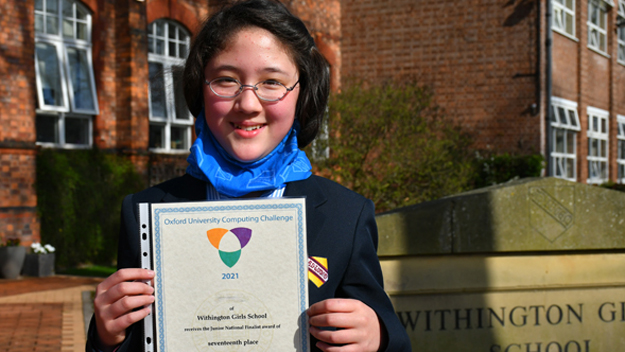Computing and Coding Achievements
Here at Withington, girls are encouraged to know no boundaries and explore the interests they may have. This extends to the field of computing and coding which are key skills to harness in our ever-evolving digital age but continue to be a male dominated sector. To develop skills in this area, pupils in the Senior School are offered many competitions to take part in from the Bebras Computational Thinking Challenge, The Matrix Challenge, to the Cyber First Girls Competition in which Withington girls have known much success over recent years. The Junior girls are also introduced to this area, covering a mix of computing theory, software skills and coding that they will continue to explore in the Senior School.
Top 20 for Zoe in Oxford University Computing Challenge
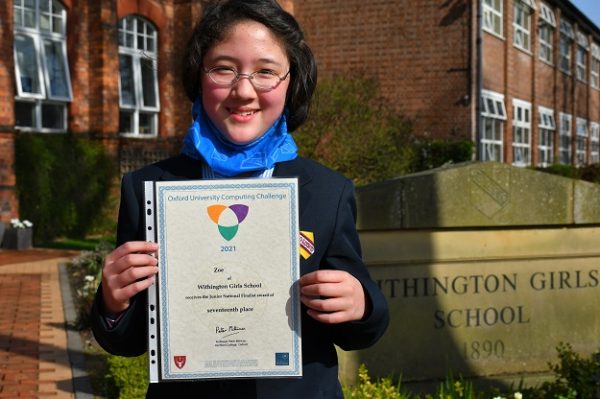
Each year a group of Withington pupils qualify to participate in the Oxford University Computing Challenge by achieving a top 10% score in the UK Bebras Computational Thinking Challenge. This year for the first time a Withington pupil, Zoe in Year 7, finished in the top 20 from 2,713 participants, qualifying for the Grand Final of the Oxford University Computing Challenge, where she was placed 17th overall in the Junior category in the UK.
Mr Snowden, Head of ICT, said: “Zoe did exceptionally well in both Challenges, scoring an amazing 100% in Bebras, which would have definitely placed her at the top of over 68,000 other entrants in her age category.”
The Oxford University Computing Challenge is an invitation event which aims to encourage students to develop their skills further and produce programmed solutions to computational thinking problems. There are 18 challenges of differing complexity to complete within 60 minutes.
Zoe was delighted with her 17th place certificate and explained how programming has become something she has grown to enjoy a great deal, and now does in her spare time as a hobby.
Avani qualifies for The Matrix Challenge National Final
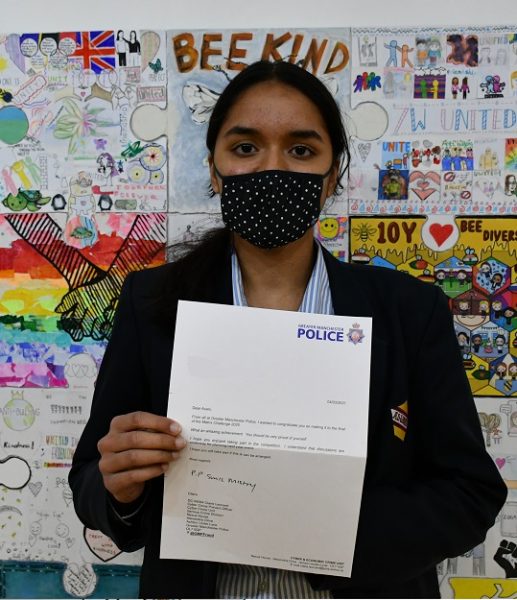
The Matrix Challenge is a cyber skills competition open to 11 to 17 year-olds across the UK created and organised by the Yorkshire and Humber Regional Cyber Crime Unit. The Challenge is in the form of a fun online game testing digital skills that would enable a career in cyber security. It also tests participants’ knowledge of the Computer Misuse Act and how to stay safe online.
Beginning in January 2020, The Matrix Challenge saw 65,000 participants from around the UK. Avani in Year 10 was one of only 38 from the North West to make it to the national final in January 2021. Our region had the highest number of contestants with 14,000 young people taking part. Avani’s achievement places her in the top 1% of all entrants from across the UK. Following the competition, the Cyber Crime Unit at Greater Manchester Police were in contact with Avani to congratulate her on her achievement and wish her luck in her future endeavours.
2018 Cyber First Finalists
The Cyber First Girls Competition provides a fun but challenging environment to inspire the next generation of young women to consider a career in cyber security. Teams of four complete tasks on cryptography, cyber security, logic, coding, and networking. Daisy, Lily, Anisha and Janani, now in Year 10, entered in 2018 and placed third out of three thousand national teams. As a reward for all their efforts, the girls were invited to afternoon tea at Windsor Castle which they thoroughly enjoyed.
BBC Newsround interviewed the girls about their experience of the competition which you can watch below.
2019 Cyber First Regional Semi-finalists
Team White Feathers, Haleema, Sama, Olivia and Kimi, progressed to the semi-finals through the online rounds held in school. The girls went to a secret location in Manchester City Centre and completed in real time with nine other schools.
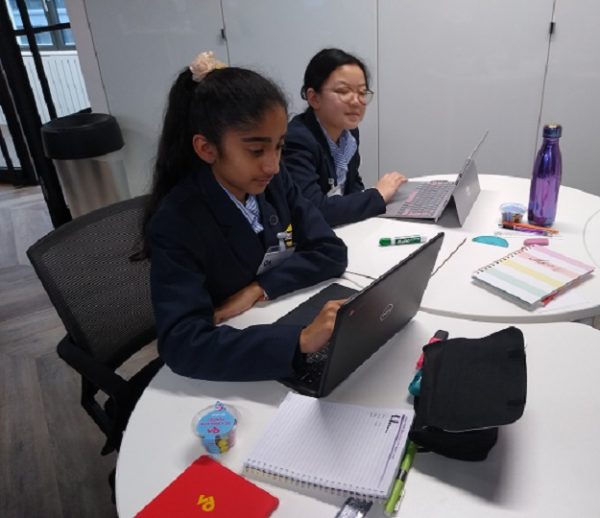
2020 Cyber First Regional Semi-finalists
Team COLE, Clara, Orli, Laura and Emily, took part in a slightly different semi-final held virtually but was still thoroughly enjoyed by the girls.
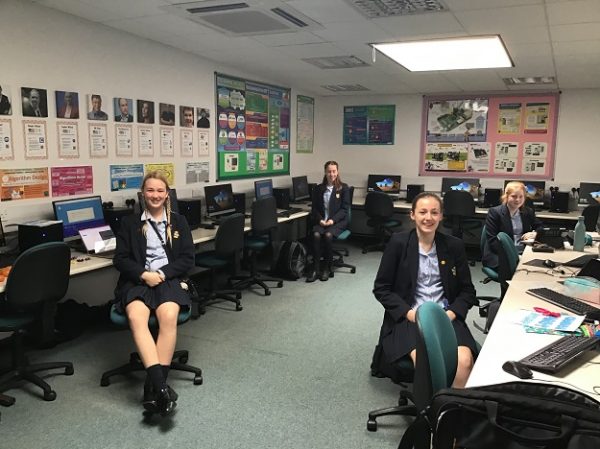
A growing number of girls are also taking part in CyberFirst courses during the holidays extending their knowledge of cyber security further.
Junior Learning
Since September, Mr Eccles and the Junior girls have worked on many projects and topics. During remote learning, pupils showed great determination and resilience to complete class projects including a Scratch Dance Party, Translation App, Image Editing and managing data with Spreadsheets.
After learning the basics of the programming language Scratch earlier in the year, Transition (Year 3) have been taking their skills a step further, by learning how to write code to control movement and events in a maze game.
Form I (Year 4) have been using Scratch for game coding with an emphasis on the design and creative elements of games. A range of different games have been examined and girls have been encouraged to use their imagination and creativity to adapt game themes.
Lower II (Year 5) have been learning HTML, the language of the world wide web, and designing and coding websites on their favourite topics.
Upper II (Year 6) have been coding using Python, a text-based programming language usually introduced in Year 7 or 8. After making a chatbot program, girls have spent recent weeks making an adventure game using their own original ideas. Whilst this has been a lot of fun, it has also introduced some of the major coding concepts and introduced a language they will be using much more in the Senior School.


